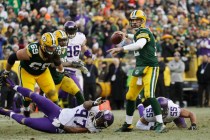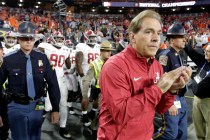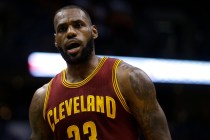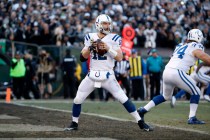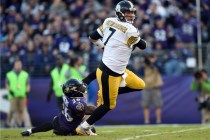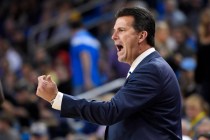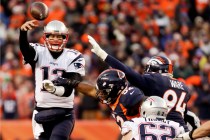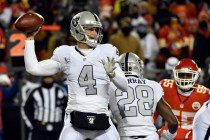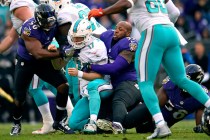‘Taboo’ tag no longer applies to sports betting

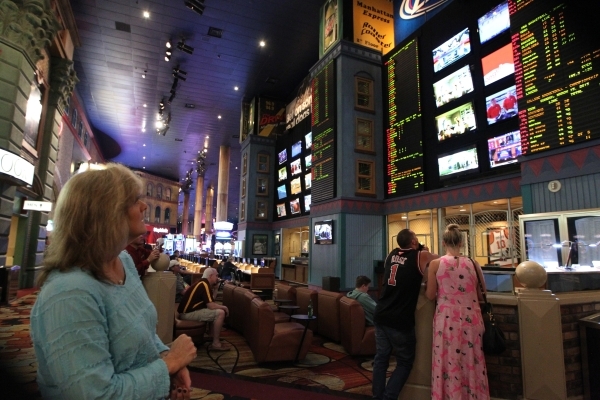
Despite his many mistakes as NFL commissioner, Roger Goodell is a smart man who works for smart men. Eventually, because they are motivated by money, they will figure it out.
Sports gambling is not evil, especially in Las Vegas where it’s legal, and the NFL can benefit more from it being legalized nationally. Adam Silver figured it out. The NBA commissioner is sharp and ahead of the curve. He probably was the first man of major influence to publicly acknowledge what’s good about the elephant in the room.
Now, the elephant is a star in the room. Sports gambling is growing as the media coverage of it is expanding. Everyone is talking about it, and it’s happening fast.
“I can’t put my finger on it, but clearly in the past couple years the perception of sports gambling has changed in this country in major media outlets,” said Jay Kornegay, Westgate Las Vegas sports book director. “It really is amazing to see how it was taboo just a couple years ago to hitting the mainstream media as we speak.”
For several reasons, this is a prime time to expand on that thought. Kornegay is hosting the fourth annual “SuperContest Weekend,” beginning at 6 p.m. today with a free football handicapping seminar featuring several top analysts in the field. Representatives from ESPN, CBS Sports and Yahoo Sports will be on panels.
A few years ago, the mainstream media wanted no part of any so-called shady activities associated with sports gambling. Obviously, things are changing.
Before the Super Bowl in February, longtime oddsmaker Jimmy Vaccaro was on ESPN’s “SportsCenter” dropping lines. In March, Fox Sports set up a stage and broadcast from the Westgate book during the NCAA Tournament. In May, MGM Resorts sports book director Jay Rood was on ESPN talking boxing betting and Floyd Mayweather Jr.
For decades, only the Las Vegas newspapers — and occasionally the New York Post — covered sports betting as a legitimate beat. Other media outlets, Kornegay said, would “try to camouflage it as much as they could.”
Al Michaels would slip in veiled betting references during Monday NFL games, and Brent Musburger would mention the elephant in the room during college games. Of course, we knew what Michaels and Musburger meant, and they became our favorite commentators.
Now, the curtain is being pulled back, and there’s nothing to hide. ESPN.com has a team of writers covering sports gambling, and it must be popular with readers because the coverage is expanding and everyone is joining our party.
“First of all, for years the only thing you would see in any kind of media coverage would be today’s lines in a column on the statistics page of the newspaper,” Kornegay said. “I’m not sure what triggered the change, but I believe it had to be interest.
“There is a lot of interest in sports gambling in this country, whether it’s legalized or not. It’s in mainstream media, even though it’s not legal in 46 states. If there was no interest in it, I can’t imagine that ESPN, CBS and Fox Sports would have special gaming divisions now. It has escalated so quickly, it can only be because of the interest they are receiving in the coverage. ESPN would show odds maybe once a week, and now, it’s a daily occurrence.”
It’s no secret or surprise that sports gambling — and football remains king of it all — is getting bigger every year. In this state, according to the Nevada Gaming Control Board, the sports wagering handle for 2014 was $3.9 billion. In 2010, it was $2.7 billion.
“We’ve been setting records every year, starting in 2010,” said Michael Lawton, senior research analyst for the NGCB. “Sports betting is booming in Nevada due to mobile apps, more betting options and an improving economy.”
Increased media coverage induces growth, too. But Nevada is just a small piece of the pie. It is estimated that $150 billion to $400 billion is bet illegally in this country through bookmakers, offshore books and pools.
New Jersey has attempted for more than five years to legalize sports betting. This week, the federal ban on all but four states (also including Delaware, Montana and Oregon) was upheld by a 2-1 vote in a Philadelphia court. New Jersey will appeal, and the saga will continue. The NFL has led efforts to support the ban.
“We’ve been very open about our position that we oppose legalized sports gambling,” Goodell said early this year. “We haven’t changed our position on that, and I don’t anticipate us changing that going forward at all. We think the integrity of the game is the most important thing, and we believe that our current position is the right way to be able to handle that, but on the other hand, if changes happen, we’ll be prepared for those.”
Meanwhile, in the spirit of hypocrisy, the NFL is going all-in with daily fantasy sports, an activity all sensible observers see as a form of unregulated gambling. But it’s legal, and the leagues are profiting from it. Look for DraftKings and FanDuel billboards at NFL, NBA, NHL and Major League Baseball venues all over the country. The booming popularity of daily fantasy sports is contributing to all of these topics being pulled out of the shadows.
“Even before we knew what FanDuel and DraftKings were, there was more interest in sports gambling,” Kornegay said. “The emergence of daily and weekly fantasy leagues has only poured fuel on this fire.”
Whether it’s the intense coverage of New England Patriots quarterback Tom Brady’s suspension or interest in the ramifications of the season-ending injury to Green Bay Packers wide receiver Jordy Nelson, Las Vegas oddsmakers are getting more calls from national media.
“Anytime something happens, or anytime there is a significant injury to a player, we’re getting calls and inquiries from the media, not just ESPN, asking how does that affect the odds? And the guy is still laying on the field,” Kornegay said. “It does not look like it’s going to slow down anytime soon.”
The SuperContest at the Westgate — the nation’s most prestigious NFL handicapping contest with a $1,500 entry fee — is a reflection of sports gambling’s escalation. The contest went from 745 entries in 2012 to 1,403 last year, and it might hit 1,700 this season, with a prize pool surpassing $2.5 million.
“The sky is the limit for the growth of the SuperContest,” Kornegay said.
There’s nothing taboo about any of it anymore.
Las Vegas Review-Journal sports betting columnist Matt Youmans can be reached at myoumans@reviewjournal.com or 702-387-2907. He co-hosts “The Las Vegas Sportsline” weekdays at 2 p.m. on ESPN Radio (1100 AM). Follow him on Twitter: @mattyoumans247




